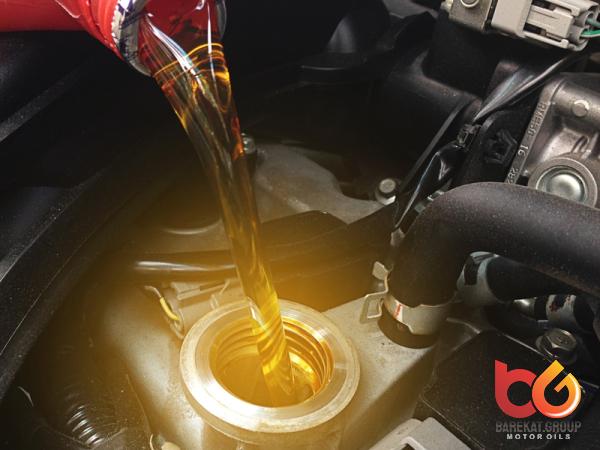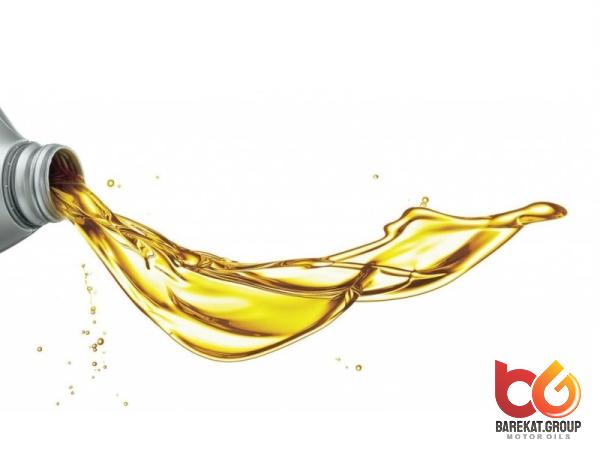Title: Motor Oil: The Impact of Purchase Price and Quality on Performance Introduction: Motor oil is an essential lubricant for engines, ensuring smooth and efficient operation by reducing friction and protecting engine components from wear and tear. However, with the wide variety of motor oils available on the market, consumers often face a dilemma when choosing the right product for their vehicles. Two crucial factors to consider are the purchase price and the quality of the oil. This article will explore the relationship between motor oil purchase price and quality, and how these factors impact performance. Understanding Motor Oil Quality: Motor oil quality is determined by various factors, including its base oil, additives, and viscosity rating. The base oil is typically derived from crude oil and undergoes refining processes to remove impurities and enhance performance.
Engine oil
 Additives are blended into the base oil to improve specific qualities such as oxidation resistance, detergent properties, and viscosity stability. The viscosity rating determines how the oil flows under different temperatures, with single-grade (e.g., SAE 30) and multi-grade (e.g., 10W-30) oils available. Price vs. Quality: The purchase price of motor oil often serves as a major deciding factor for consumers. Cheaper oils may seem attractive due to their lower cost, but it is important to understand that quality cannot be disregarded. Higher-priced oils are typically formulated with advanced base oils and additives, resulting in improved performance and enhanced engine protection. However, this does not mean that all expensive oils are of high quality or that cheaper oils are necessarily poor in performance. The purchase price can, to some extent, be an indicator of quality, but it should not be the sole determining factor. Testing Motor Oil Quality: There are various tests carried out to assess the quality of motor oils.
Additives are blended into the base oil to improve specific qualities such as oxidation resistance, detergent properties, and viscosity stability. The viscosity rating determines how the oil flows under different temperatures, with single-grade (e.g., SAE 30) and multi-grade (e.g., 10W-30) oils available. Price vs. Quality: The purchase price of motor oil often serves as a major deciding factor for consumers. Cheaper oils may seem attractive due to their lower cost, but it is important to understand that quality cannot be disregarded. Higher-priced oils are typically formulated with advanced base oils and additives, resulting in improved performance and enhanced engine protection. However, this does not mean that all expensive oils are of high quality or that cheaper oils are necessarily poor in performance. The purchase price can, to some extent, be an indicator of quality, but it should not be the sole determining factor. Testing Motor Oil Quality: There are various tests carried out to assess the quality of motor oils.
Specifications of Engine oil
 These tests evaluate aspects such as viscosity, wear protection, oxidation stability, detergency, and cold-flow properties. The viscosity test measures the oil’s resistance to flow, ensuring that it provides adequate lubrication across a range of engine temperatures. Wear protection tests determine how well the oil forms a protective barrier between metal surfaces, reducing wear and extending engine life. Oxidation stability tests measure the oil’s ability to resist degradation when exposed to high temperatures, while detergency tests assess its ability to keep engine components clean. Finally, cold-flow tests investigate how well the oil flows in extreme low-temperature conditions. The Impact of Motor Oil Quality on Performance: Motor oil quality directly impacts engine performance and longevity. High-quality oils provide better lubrication, reducing friction and heat generation, which in turn enhances fuel efficiency. They also offer superior wear protection, minimizing engine wear, and maintain viscosity stability over a wide range of temperatures.
These tests evaluate aspects such as viscosity, wear protection, oxidation stability, detergency, and cold-flow properties. The viscosity test measures the oil’s resistance to flow, ensuring that it provides adequate lubrication across a range of engine temperatures. Wear protection tests determine how well the oil forms a protective barrier between metal surfaces, reducing wear and extending engine life. Oxidation stability tests measure the oil’s ability to resist degradation when exposed to high temperatures, while detergency tests assess its ability to keep engine components clean. Finally, cold-flow tests investigate how well the oil flows in extreme low-temperature conditions. The Impact of Motor Oil Quality on Performance: Motor oil quality directly impacts engine performance and longevity. High-quality oils provide better lubrication, reducing friction and heat generation, which in turn enhances fuel efficiency. They also offer superior wear protection, minimizing engine wear, and maintain viscosity stability over a wide range of temperatures.
Buy Engine oil
 High-quality oils have better detergency properties, keeping engines clean and reducing the formation of deposits that can impede performance. Furthermore, quality oils have superior oxidation stability, ensuring prolonged oil life and reducing the risk of sludge formation. Ultimately, investing in high-quality motor oil can lead to improved engine performance, increased fuel efficiency, and longer engine life. Choosing the Right Motor Oil: When choosing motor oil, it is essential to consider the specific requirements of the vehicle. Consult the owner’s manual or seek advice from a trusted mechanic or manufacturer to determine the recommended viscosity grade and specifications. Selecting the appropriate oil for the vehicle’s make, model, and climate conditions is crucial for optimal performance and protection. Additionally, look for motor oils that meet industry-approved standards, such as the American Petroleum Institute (API) certification and the International Lubricant Standardization and Approval Committee (ILSAC) license.
High-quality oils have better detergency properties, keeping engines clean and reducing the formation of deposits that can impede performance. Furthermore, quality oils have superior oxidation stability, ensuring prolonged oil life and reducing the risk of sludge formation. Ultimately, investing in high-quality motor oil can lead to improved engine performance, increased fuel efficiency, and longer engine life. Choosing the Right Motor Oil: When choosing motor oil, it is essential to consider the specific requirements of the vehicle. Consult the owner’s manual or seek advice from a trusted mechanic or manufacturer to determine the recommended viscosity grade and specifications. Selecting the appropriate oil for the vehicle’s make, model, and climate conditions is crucial for optimal performance and protection. Additionally, look for motor oils that meet industry-approved standards, such as the American Petroleum Institute (API) certification and the International Lubricant Standardization and Approval Committee (ILSAC) license.
Engine oil + buy and sell
 These certifications ensure that the oil has met rigorous testing and performance requirements. Conclusion: When it comes to choosing motor oil, the purchase price and quality should be carefully considered. While price can be an indicator of quality to some extent, it is not the sole determining factor. Higher-priced oils often offer better performance, improved engine protection, and enhanced fuel efficiency. However, it is essential to evaluate the specific requirements of the vehicle, consult the owner’s manual, and seek advice from professionals to select the appropriate oil. Ultimately, investing in high-quality motor oil is worth it, as it can have a significant impact on engine performance, longevity, and overall vehicle efficiency.
These certifications ensure that the oil has met rigorous testing and performance requirements. Conclusion: When it comes to choosing motor oil, the purchase price and quality should be carefully considered. While price can be an indicator of quality to some extent, it is not the sole determining factor. Higher-priced oils often offer better performance, improved engine protection, and enhanced fuel efficiency. However, it is essential to evaluate the specific requirements of the vehicle, consult the owner’s manual, and seek advice from professionals to select the appropriate oil. Ultimately, investing in high-quality motor oil is worth it, as it can have a significant impact on engine performance, longevity, and overall vehicle efficiency.
Your comment submitted.